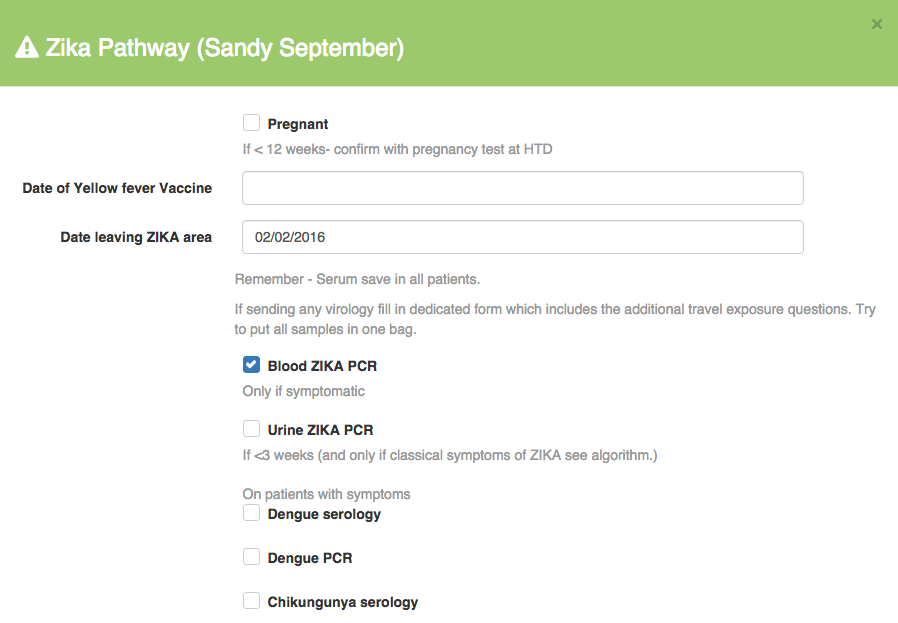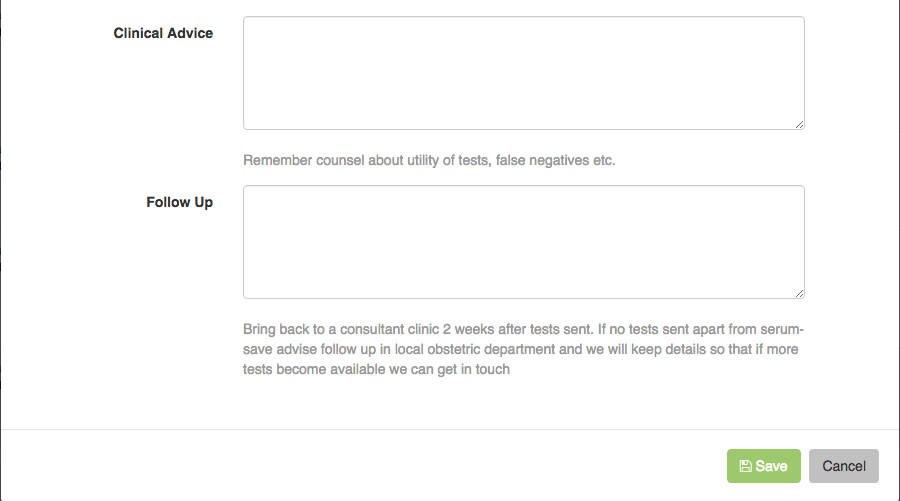How we’re helping respond to the Zika outbreak

The last few months have seen an explosive spread of the Zika virus, which has been potentially linked to thousands of birth defects in Latin America. The Zika virus is a mosquito-transmitted infection that was previously sporadically reported in Africa and the Pacific, but has recently started spreading rapidly in South America. Patients usually have a mild flu-like illness consisting of a low fever, headache, muscle and joint pain, red eyes and rash.
In the UK, many patients who exhibit symptoms related to Zika and have recently travelled are referred to the specialist Hospital for Tropical Diseases in London, which has resulted in a large increase in their workload.
The Hospital for Tropical Diseases uses our elCID software to manage their clinical workflow, so as soon as we heard this, we tried to understand what we could do to help. At Open Health Care we believe the digital tools clinicians use to do their jobs need to be iterated and improved on a frequent basis. That means we deliver services that are flexible enough to adapt to changing clinical needs, and we’re on hand to help make those improvements.

Working closely with clinicians from HTD, we quickly developed a prototype Zika “pathway”. This enables users to record extra information of particular importance to patients they were treating for Zika, as well as extra quick ways to enter the very specific set of tests that are most relevant to such patients.
Because we have an electronic clinical pathway specific to the particular condition being treated, we were able to provide lots of contextually relevant information and notes for its treatment. This guidance was written by the local consultants, and helps to make sure that every patient is given the very best care possible.

All the information about patients that gets entered on elCID is stored as high quality structured data. That means that we are also able to generate a summary of their interaction with the patient at the click of a button, complete with symptoms, travel history, investigations and results, and the specific extra Zika information we are now recording.
Documenting clinical activity in this way - on digital tools that understand the clinical domain - means that it is also available subsequently for audit and analysis purposes. Extracting data on the management of Zika patients at the hospital is now something that can be done in a few clicks, rather than requiring a laborious manual review of clinical documentation.
In many ways this is one of the real opportunities of the NHS’ move to paperless working - when you move to using tools that allow you to analyse and learn from data generated by routine clinical work. We look forward to finding out what the team learn about their response to the Zika outbreak.
Crucially, this new module involved just a couple of days prototyping, iterating and testing the new Zika pathway, before deploying to the live system. Over the next few weeks we’ll be checking back regularly to gather feedback from the users of the service so that we can be sure that we’re meeting their needs.
Updating the systems that underpin the delivery of care should be this simple all the time - they should be designed with flexibility and iteration in mind, and be supported by teams who have the capability to iterate them responsively.
If you’d like to know more about how we could help you by delivering services like this, or more about the services we offer, do get in touch with us at hello@openhealthcare.org.uk.
Photo credits: John Tan
